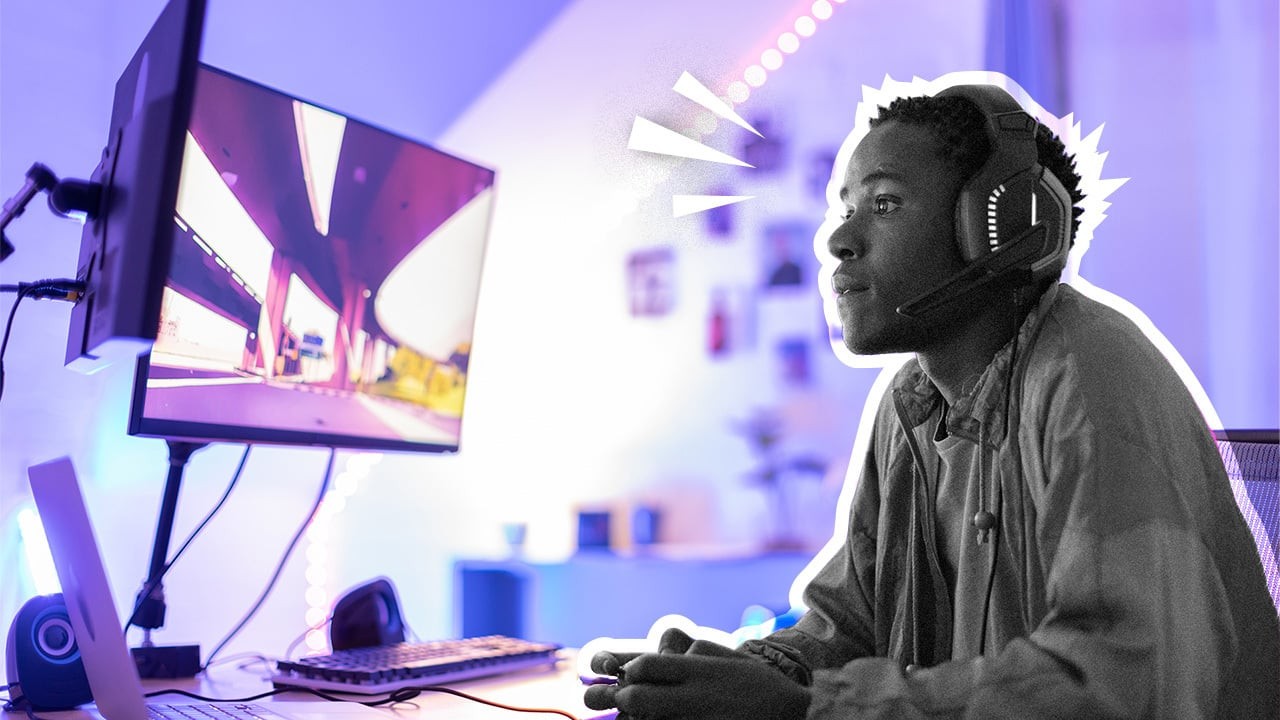Gaming has evolved from a mere hobby into a global phenomenon, with millions of players, viewers, and enthusiasts worldwide. As the gaming industry grows, a new question arises: Can gaming be considered a professional career? In this article, we’ll explore the various facets of professional gaming, the rise of esports, and how individuals can turn their passion for gaming into a full-fledged career.
The Rise of Gaming as a Career
Historically, video games were a pastime enjoyed primarily by children and teenagers. However, with advancements in technology, the gaming industry has expanded significantly, giving birth to new career opportunities. Professional gamers, game developers, streamers, content creators, and esports athletes now enjoy lucrative careers that were once unimaginable.
1. Professional Gaming: A New Era of Careers
Esports, in particular, has seen explosive growth. Esports tournaments now offer multimillion-dollar prize pools, with competitions watched by millions of viewers across the globe. Games such as League of Legends, Fortnite, and Dota 2 have evolved into massive industries, where top players can earn substantial salaries from winnings, sponsorships, and streaming.
Professional gamers are no longer just skilled players; they are considered athletes in the esports industry. With an increasing number of universities offering esports scholarships and gaming programs, it’s evident that gaming can indeed be seen as a professional career.
2. The Role of Streamers and Content Creators
Streaming platforms like Twitch, YouTube Gaming, and Facebook Gaming have enabled gamers to showcase their skills and build a following. Streamers and content creators can generate income through ads, sponsorships, donations, and merchandise sales. The opportunity to monetize one’s gaming passion has attracted many individuals to consider gaming as a career path.
3. Game Development and Design Careers
Not all career opportunities in gaming revolve around playing games. Game development is a significant sector within the gaming industry, involving positions like game designers, programmers, artists, sound engineers, and quality testers. With the increasing demand for immersive and high-quality games, the gaming industry continues to offer promising career paths for individuals interested in the development side of things.
Skills Required to Pursue a Professional Gaming Career
To build a successful gaming career, one needs a unique set of skills. These can vary depending on the chosen profession within the industry.
- Exceptional gaming skills: Competitive gaming requires not only understanding game mechanics but also developing mental resilience, strategy, and quick decision-making.
- Technical expertise: For those pursuing game development or streaming, understanding coding languages, graphics design, and sound production is crucial.
- Communication and teamwork: For esports players, communication is vital during team-based games. Being able to work in a collaborative environment can help players and content creators connect with their audience or teammates.
- Marketing and self-promotion: Professional gamers and content creators must know how to market themselves. Building a personal brand is essential for attracting sponsors and growing a dedicated fanbase.
Challenges Faced by Professional Gamers
While the rewards of a gaming career can be significant, the journey is not without challenges. Aspiring gamers face intense competition, both in terms of skill and the sheer number of individuals trying to break into the industry. Some of the challenges faced by professional gamers include:
1. Short Career Lifespan
The gaming industry, particularly esports, has a relatively short career lifespan for players. As new games are introduced and young talent emerges, it can be difficult to maintain a career in gaming for many years. Many professional players retire in their mid-to-late 20s, and only a select few manage to stay relevant beyond that age.
2. Pressure and Mental Health
Gaming at a professional level requires immense focus and dedication. The pressure to perform well and succeed can take a toll on a player’s mental health. The grind of constant practice, competition, and the need to stay at the top can lead to burnout and stress.
3. Financial Stability
While top-tier players can earn significant amounts, many gamers face financial instability in the early stages of their careers. Sponsorships and tournament winnings are not guaranteed, and the financial security of gamers can fluctuate based on their performance and popularity.
The Future of Gaming as a Professional Career
As technology continues to advance, the possibilities for gaming as a professional career are expanding. With the rise of virtual reality (VR), augmented reality (AR), and AI-driven games, there is an increasing demand for innovation within the industry. New job opportunities are emerging, and gaming is likely to continue evolving into a more prominent career path.
Esports will also continue to grow, with more countries investing in infrastructure, training programs, and sponsorships. The global nature of esports will further enhance its appeal, creating even more career opportunities for aspiring gamers and professionals.
Conclusion
In conclusion, gaming has undoubtedly evolved into a legitimate professional career path. Whether through competitive gaming, streaming, game development, or content creation, the opportunities are diverse and plentiful. However, like any other career, it requires hard work, dedication, and resilience to succeed. If you have a passion for gaming and the necessary skills, there’s a strong possibility that you can turn your love for gaming into a rewarding profession
This format focuses on long-tail keywords, relevant content, and provides an engaging experience for users. To improve SEO further, consider incorporating internal links to other related articles, using schema markup for rich snippets, and ensuring a responsive design for better user engagement

